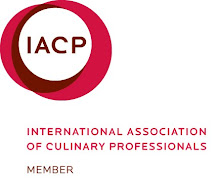I just stopped into my local green grocer, the one I have always counted on to provide the freshest, most seasonal products available, and displayed right up on the counter was the most beautiful asparagus. The only problem is that not only are asparagus absolutely not in season but they came from thousands of miles away: Monterey, California. If I lived in Alaska or Norway or some other place where it was impossible to find fresh fruits and vegetables that would be one thing. But the fact is that here in Rome, in the heart of the Mediterranean, we are exploding with outstanding fresh produce.
"We believe that everyone has a fundamental right to pleasure and consequently the responsibility to protect the heritage of food, tradition and culture that make this pleasure possible. Our movement is founded upon this concept of eco-gastronomy – recognition of the strong connections between plate and planet. We consider ourselves co-producers, not consumers, because by being informed about how our food is produced and actively supporting those who produce it, we become a part of and a partner in the production process. We believe the enjoyment of excellent food and drink should be combined with efforts to save the countless traditional grains, vegetables, fruits, animal breeds and food products that are disappearing due to the prevalence of convenience food and industrial agribusiness."
If we begin selling, purchasing and consuming non-Italian produce just because it's cheaper or because we feel we have to have a strawberry in winter we are defeating the basis of the Slow Food movement and sustainability. We need to support our local producers, protect our local culinary heritage and consider the social and environmental impact of not buying locally. According to sustainabletable.org "in order to facilitate long distance shipment, foods are highly processed, supplemented with preservatives, and require excessive packaging. Foods purchased locally are also fresher, and therefore contain more nutrients. Industrial agriculture operations use huge amounts of toxic pesticides to eliminate pests. Large amounts of fossil fuel are required to plow fields, produce fertilizers, process foods, and transport foods." There are also many other health, environmental, animal waste, water waste, soil, pesticide, antibiotic, hormone, genetic diversity, fossil fuel, transportation, animal welfare, economic development, community and labor issues that are improved by eating sustainably.
In 2010 why not try to shorten the distance from which your food is sourced and lengthen your time at the table. Purchase from your local farmers market, dairy or farm. You could start a vegetable garden or join a food coop. Or make a New Year's resolution to change your lifestyle to a more sustainable lifestyle, even if it's just something as simple as foregoing out of season fruits and vegetables.






Ciao e buon'annno!
ReplyDeleteI was chatting with my niece, who lives in Florida, and her comment to me about seasonal vegetables was, "I live in Florida. How am I supposed to know what's in season." Makes me stop and think.
Quite true Judith although your niece may be unaware of seasonality as Florida has a year round fabulous growing season; she's lucky!
ReplyDeleteYou can suggest that she go to any garden store and ask the proprietor what's in season in her area. She can also try a local farmer's market.